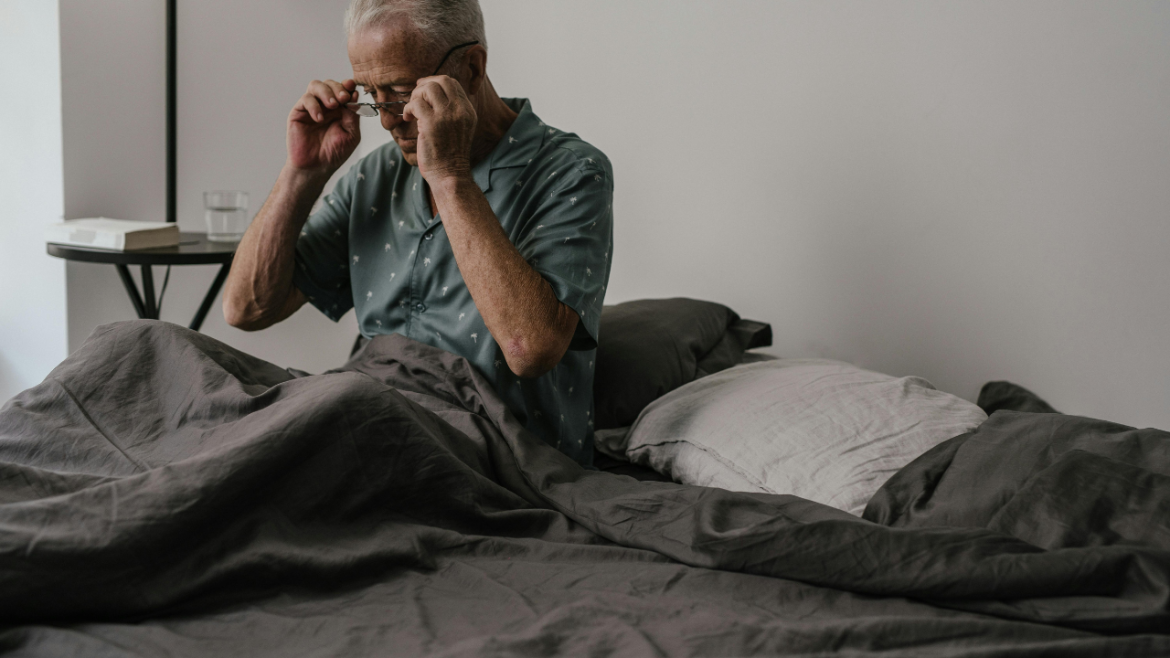What Causes Insomnia In Seniors?
Did you know that Leading Edge Senior Care has a Dementia Support Group? We meet monthly in Mesa. For more details <click here>
What Causes Insomnia in Seniors?
Insomnia is a common issue that many seniors face as they age. It’s more than just an occasional sleepless night; for some, it becomes a chronic problem that significantly impacts their quality of life. Understanding the causes of insomnia in seniors is essential for finding effective treatments and improving their overall well-being. This article will explore the various factors that contribute to insomnia in the elderly and offer insights into how to manage this challenging condition.
The Impact of Aging on Sleep Patterns
As people age, their sleep patterns naturally change. Seniors often experience a decrease in deep sleep, which is the restorative stage of the sleep cycle. They may also wake up more frequently during the night. These changes can lead to fragmented sleep, making it difficult for seniors to feel rested in the morning. While these changes are a normal part of aging, they can be exacerbated by other factors, leading to chronic insomnia.
Health Conditions Contributing to Insomnia
One of the primary causes of insomnia in seniors is the presence of chronic health conditions. Many seniors suffer from conditions like arthritis, heart disease, and respiratory problems, all of which can cause discomfort and make it difficult to sleep. Pain, in particular, is a significant factor that can keep seniors awake at night. Additionally, conditions such as Parkinson’s disease and Alzheimer’s can directly affect sleep by disrupting the brain’s normal sleep-wake cycles.
Depression and anxiety are also common among seniors and can contribute to insomnia. The emotional toll of these conditions often leads to difficulty falling asleep or staying asleep. The mind may race with worries or sadness, making it nearly impossible to relax enough to drift off. The connection between mental health and sleep is profound, and addressing these issues is crucial for improving sleep quality in seniors.
The Role of Medications in Sleep Disruption
Medications are another significant factor in senior insomnia. Many elderly individuals take multiple medications to manage their health conditions. Unfortunately, some of these medications can have side effects that interfere with sleep. For example, certain medications used to treat high blood pressure, asthma, or depression may cause restlessness or frequent waking during the night.
It’s important for seniors and their caregivers to review all medications with a healthcare provider to determine if any could be contributing to sleep problems. In some cases, adjusting the dosage or switching to a different medication can help alleviate insomnia.
Lifestyle Factors Affecting Sleep
Lifestyle choices can also play a role in senior insomnia. For instance, napping during the day, while often necessary due to fatigue, can make it harder to sleep at night. Additionally, a lack of physical activity can contribute to poor sleep. Exercise has been shown to improve sleep quality, but many seniors may lead a more sedentary lifestyle due to physical limitations or lack of motivation.
Dietary habits can also affect sleep. Consuming caffeine or heavy meals close to bedtime can make it difficult to fall asleep. Seniors should be mindful of their evening routine, choosing light, easy-to-digest foods and avoiding stimulants that could keep them awake.
The Importance of a Sleep-Friendly Environment
Creating a sleep-friendly environment is another crucial step in addressing insomnia in seniors. The bedroom should be a peaceful, comfortable space that promotes relaxation. Factors such as room temperature, lighting, and noise levels can all impact sleep. Ensuring that the bedroom is cool, dark, and quiet can help seniors fall asleep more easily and stay asleep longer.
In some cases, using white noise machines or earplugs can help block out disruptive sounds, while blackout curtains can prevent early morning light from waking them too soon. A comfortable mattress and pillows that support the body’s needs can also make a significant difference in sleep quality.
Seeking Professional Help for Insomnia
When lifestyle changes and environmental adjustments aren’t enough, it may be time to seek professional help. Cognitive-behavioral therapy for insomnia (CBT-I) is an effective treatment that helps seniors change their thoughts and behaviors around sleep. This therapy focuses on breaking the cycle of negative thoughts and habits that contribute to insomnia, replacing them with positive, sleep-promoting practices.
In some cases, medication may be prescribed to help manage insomnia, but it’s important to use these under close supervision to avoid dependency or other side effects. Seniors should work closely with their healthcare provider to find the most appropriate treatment for their individual situation.
Conclusion
Insomnia in seniors is a complex issue with many contributing factors. From health conditions and medications to lifestyle choices and environmental factors, there are numerous elements that can disrupt sleep. By understanding these causes and taking steps to address them, seniors can improve their sleep quality and overall well-being. Whether through lifestyle changes, environmental adjustments, or professional treatments, it’s possible to find relief from insomnia and enjoy more restful nights.

